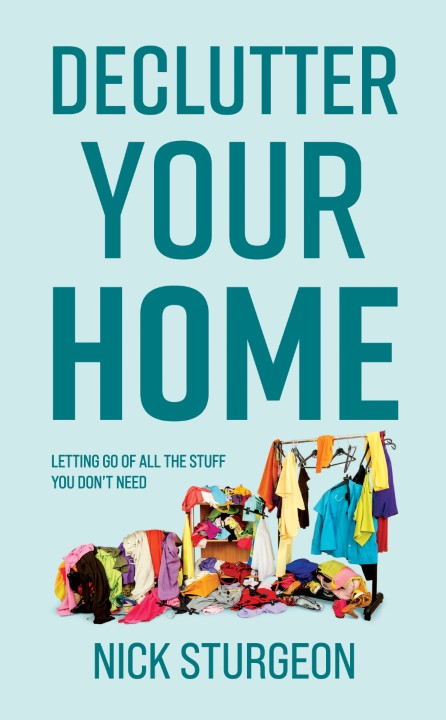In exploring our own situation of a house filled with 'stuff' and all the emotional issues I felt around these possessions I started to look at the themes of letting go, of discarding and living with less. You have read about the 'light switch' moment when I was about to buy yet another book and realised the stupidity of doing so, and of how that moment started the conversation in my mind about doing the same or better with less possessions and better energy. Let me tell you now about another trigger for me.
I searched online for people choosing to live fulfilling lives with less than they might have had before or for blog articles about frugal living and minimalism. Through such a search I found the documentary called "Minimalism" and sat one evening to watch it. Produced by Matt D'Avella it explores the conversations and ideas discussed by friends Joshua Fields Millburn and Ryan Nicodemus. In looking at this I felt as though I were discovering for myself a previously hinted at, but largely unknown, life space occupied by people who have turned their back on consumerism and instead questioned what they need to live well and to live happily. If Consumerism is the mass wave of being swept along in buying the latest cellphone, or fighting - sometimes literally - for the best deal at a store opening on Black Friday, then the opposite of this is making what you have last longer and being in a place where the same amount of money now buys you more of what you will appreciate and preserve.
In one example from the "Minimalism" documentary an architect who designs tiny homes talks about his lifestyle, the choices he has made and the freedom he considers he has from living with less. He lives in an off grid trailer unit that can be towed by a vehicle to an alternative site when he chooses. It has a double bed, kitchen, fold down dining table, wifi, solar panels on the roof, a shower room and toilet, shelves for his favourite books. It has good headroom and eaves storage as well. He can hook up the tiny home and move it across the city or he can take it across the country. He has his home in one space that gives him the essentials of what he needs to live well.
Within the same programme is an interview with a man in his twenties who has reduced his belongings to 51 items that he can pack into just two bags, a weekend shoulder bag and a laptop bag. With just these items he lives a very flexible life, able to work from different places around the world as he chooses, precisely because he doesn't have the baggage that we surround ourselves with in everyday life. He doesn't have the burden of living in one place, can earn money and pay rent where he chooses, visit fiends nationally or globally and still maintain what - for him - is a lifestyle he can enjoy.
We are demanding more space and more facilities in buildings that we make proportionately less use of than our parents and grandparents. Garages are used primarily for storage of clutter rather than for the storage of a vehicle. Rarely are they spaces where we keep our workshop and tool collection. Instead we use such skills less and pay other people to do the repair work for us. The lack of knowledge over how to maintain a house comes at a financial cost. There has been a vast growth in self-store facilities where people pay to have someone else to store their sealed boxes. Often times there is a correlation between people deciding to stop paying for long-term storage and their realisation upon collecting the boxes of items, that the things they have stored were not worth the money spent for that same storage hire.
I went through much the same thing when, for a two year period following my divorce, I placed a lot of things in the local self-storage depot. The storage cost was nearly a thousand dollars. When I finally collected the items I had been storing I threw away almost 90% of them. The whole exercise had been a knee-jerk reaction to moving from a large family house to a small space just for my own use and I had not thought it through. It would have been more cost effective to give away what was predominantly clutter, instead of paying a company to place it in a locker unit for me!
The access to cheaper materials and fabrics from the developing world, and the low cost of labour in such producing marketplaces, has allowed us to see disposable or low wear clothing as more affordable than nutritious food. The cost to the planet of the energy required for the creation and global distribution of this level of production has massive consequences. The minimalists are sharing a message that it is better to lead a life where you can rely on far less money because that money will go so much further when spent on items that are durable, and which of course you love and appreciate. When you cost of living drops, but you are able to maintain or enhance that standard of living, you are in a good place. Declutter and realise what you no longer need. This is the way you become free and gain greater happiness and contentment with your life.

